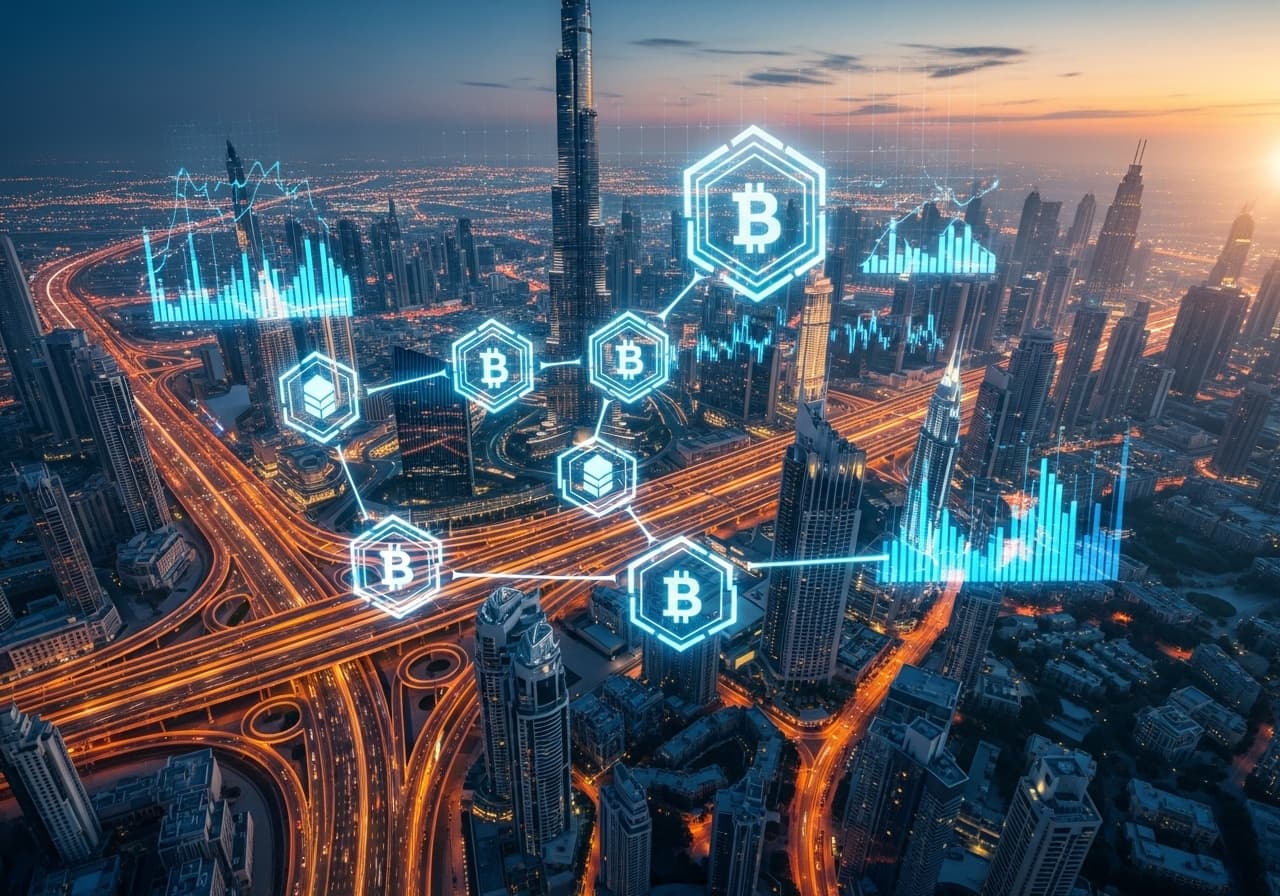Owning a piece of Dubai's iconic skyline used to feel like a distant dream, reserved for a select few. Not anymore.
A major shift in financial technology is opening up the city's profitable real estate market to everyone. You can now invest in a prime Dubai property with as little as AED 2,000 (about ₹48,000), and the response has been incredible.
Just how incredible? A tokenized property listed this past June sold out completely. It was gone in 1 minute and 58 seconds, leaving over 10,700 people on the waitlist. This wasn't a fluke. The city's first tokenized property in May also sold out in under 24 hours, pulling in 224 investors from 44 different countries.
This is property tokenization in action. It's a new model for building wealth that puts a new generation of investors in control.
Dubai is Changing the Real Estate Game
So how does this all work? At its heart, property tokenization in Dubai uses blockchain to divide a physical property into digital shares, called tokens. You can think of it like a company issuing stock. Instead of owning part of a business, you own a direct, fractional share of a specific apartment or villa.
The magic behind this is the smart contract. It’s a digital agreement written in code on a blockchain that runs itself, no lawyers or extra paperwork needed. This system makes every transaction secure and transparent, cutting out many of the traditional middlemen that make real estate so complex.
This isn't just a tech trend; it's a strategic plan. The Dubai Land Department (DLD) has been actively pushing for real estate tokenization since 2021, setting up the city to be a world leader in this new field.
As the Director of Innovation at the Dubai Future Foundation’s Financial Sector Lab points out, Dubai's goal isn't just to attract money. It's about creating a new era of clear, accessible property ownership built on digital trust.
Dubai Tokens and Indian REITs: Different Roads, Same Destination
While Dubai is pushing forward with this high-tech method, India uses a more established model for fractional ownership called Real Estate Investment Trusts, or REITs. Both aim to make property investment easier, but they work very differently.
-
Indian REITs, overseen by SEBI, are like mutual funds for property. They are massive trusts that own and manage a portfolio of commercial properties like office buildings and malls. When you invest in a REIT, you buy a unit of the trust itself, not a direct slice of a building. It's an indirect way to own, offering steady dividends from a professionally managed pool of assets.
-
Dubai's tokenization offers something different: direct fractional ownership. Your token represents a legal, recorded share of one specific property. This directly links your investment to how that single asset performs, from rental income to its final sale price.
The Important Part: Getting Your Money In and Out
Beyond the potential for returns, investors need to know the practical details. The differences between the two models are especially important for anyone investing from abroad.
Dubai's tokenized properties benefit hugely from the city's investor-friendly tax rules. For individuals, there are generally no capital gains or income taxes on rent. This means more of the profit stays with you. The process for sending funds out of the UAE is also known for being clear and simple, making it easy to move your returns home.
Investing in Indian REITs means dealing with a more standard tax system. Both dividends and capital gains fall under Indian tax laws, and you also have to consider the tax rules in your own country. It's a manageable process, but it does add a layer of complexity.
Both systems are fundamentally changing how people invest in property. Whether you prefer the portfolio approach of Indian REITs or the direct, tech-powered model of Dubai's tokenization, one thing is clear. The keys to the real estate kingdom are not just for a select few anymore.


